J.M. Neale Medieval and Eastern Church History Collection (12 vols.)
Digital Logos Edition
Overview
An Anglican priest, scholar, and hymnist, John Mason Neale contributed significantly to the field of church history in the nineteenth century. In the four volumes on the Psalms edited by Neale and R.F. Littledale, the writings of Church Fathers and other scholars of the Middle Ages are woven together into a comprehensive commentary. In the next six volumes of this impressive 12-volume collection, Neale offers vivid detail on the mystical theology, worship, history, and peculiarities of the Eastern Church as compared with the West. This collection also includes Neale’s survey of important sermons and writings of medieval preachers.
With Logos Bible Software, these volumes are enhanced with cutting-edge research tools. Scripture citations appear on mouseover in your preferred English translation. Important terms link to dictionaries, encyclopedias, and a wealth of other resources in your digital library. Powerful topical searches help you find exactly what you’re looking for. With Logos, the most efficient and comprehensive research tools are in one place, so you get the most out of your study.

Key Features
- Includes verse-by-verse commentary on all 150 Psalms
- Provides an in-depth history of the Orthodox Church from a Western perspective
- Presents a collection of sermons from noteworthy preachers in the Medieval Ages
- Offers a look at the preaching style, and sermon topics of the Middle Ages
Product Details
- Title: J.M. Neale Medieval and Eastern Church History Collection
- Volumes: 12
- Pages: 4,670
- Christian Group: Anglican
- Resource Type: Commentaries; Histories; Sermons
- Topic: Medieval Period; Medieval Church
Individual Titles
- A Commentary on the Psalms from Primitive and Mediæval Writers, vol. 1
- A Commentary on the Psalms from Primitive and Mediæval Writers, vol. 2
- A Commentary on the Psalms from Primitive and Mediæval Writers, vol. 3
- A Commentary on the Psalms from Primitive and Mediæval Writers, vol. 4
- A History of the Holy Eastern Church, vol. 1
- A History of the Holy Eastern Church, vol. 2
- A History of the Holy Eastern Church, vol. 3
- A History of the Holy Eastern Church, vol. 4
- The Holy Eastern Church: A Popular Outline of its History, Doctrines, Liturgies, and Vestments
- Hymns of the Eastern Church
- Mediæval Preachers and Mediæval Preaching
- The Moral Concordances of Saint Anthony of Padua by St. Anthony of Padua and Lisbon
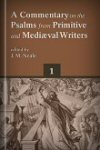
Volume one of the Commentary on the Psalms from Primitive and Mediæval Writers covers Psalms 1–38. In addition to verse-by-verse commentary, each Psalm includes an introduction and various thoughts from the writings of the Church Fathers. Volume one also includes an in-depth introduction to the series, which includes two dissertations: “The Psalms as Employed in the Offices of the Church” and “Primitive and Mediæval Commentators on the Psalms,” which provides concise biographical notices of the principal commentators referenced in all four volumes. A third dissertation, “The Mystical and Literal Interpretation of the Psalms,” will be found after the thirtieth Psalm.
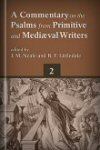
Volume two of the Commentary on the Psalms from Primitive and Mediæval Writers covers Psalms 39–80. In addition to verse-by-verse commentary, each Psalm includes an introduction and various thoughts from the writings of the Church Fathers. A dissertation, “Chronology and Authorship of the Psalms,” explores the “original” order of the Psalms and discusses the many problems of trying to discern their “true” chronological sequence.
Richard Frederick Littledale (1833–1890) was born in Dublin and educated at Bective House Seminary and Trinity College, Dublin. His numerous works include The Priest’s Prayer Book and The People’s Hymnal.
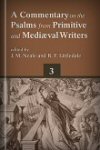
Volume three of the Commentary on the Psalms from Primitive and Mediæval Writers covers Psalms 81–118. In addition to verse-by-verse commentary, each Psalm includes an introduction and various thoughts from the writings of the Church Fathers.
Richard Frederick Littledale (1833–1890) was born in Dublin and educated at Bective House Seminary and Trinity College, Dublin. His numerous works include The Priest’s Prayer Book and The People’s Hymnal.
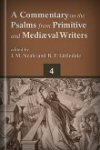
Volume four of the Commentary on the Psalms from Primitive and Mediæval Writers covers Psalms 119–150. In addition to verse-by-verse commentary, each Psalm includes an introduction and various thoughts from the writings of the Church Fathers. This volume also includes the dissertation “The Psalms as Used in the Sacraments and Rites of the Church” and provides an index of Scripture references for the entire collection.
Richard Frederick Littledale (1833–1890) was born in Dublin and educated at Bective House Seminary and Trinity College, Dublin. His numerous works include The Priest’s Prayer Book and The People’s Hymnal.
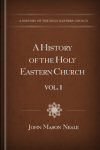
A History of the Holy Eastern Church, vol. 1
- Author: J.M. Neale
- Publisher: Joseph Masters
- Publication Date: 1850
- Pages: 570
The first volume of this set serves as a general introduction to the Eastern Orthodox Church. Neale covers the geographical and national origins of the various Orthodox churches, the ecclesiology of the Orthodox Church, its liturgies and worship, the Church calendar, and various points of contention with the Western Church as a whole and the Roman Catholic Church in particular.
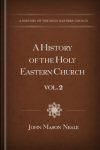
A History of the Holy Eastern Church, vol. 2
- Author: J.M. Neale
- Publisher: Joseph Masters
- Publication Date: 1847
- Pages: 348
The first of two volumes on the history and theology of the Patriarchate of Alexandria, covering everything from its apostolic foundations in the first century to the rise of the Nestorian controversy and the fourth Ecumenical Council of Chalcedon.
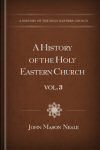
A History of the Holy Eastern Church, vol. 3
- Author: J.M. Neale
- Publisher: Joseph Masters
- Publication Date: 1847
- Pages: 494
Neale’s second volume on the history and theology of the Patriarchate of Alexandria, covering everything from the deposition of Dioscorus (fifth century), to the Synod of Jerusalem in the seventeenth century, which was assembled for the purposes of an Eastern Orthodox response to Calvinism.
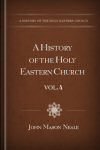
A History of the Holy Eastern Church, vol. 4
- Author: J.M. Neale
- Publisher: Rivingtons
- Publication Date: 1873
- Pages: 229
Starting with the apostles James and Peter, Neale gives a thorough overview of the history and theology of the Patriarchate of Antioch, all the way through the fourth century. The appendices also cover more recent (for Neale) interactions and discussions between the Patriarchate of Antioch and those of both Russia and Constantinople, along with its standing in the middle of the nineteenth century.
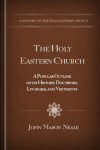
The Holy Eastern Church: A Popular Outline of its History, Doctrines, Liturgies, and Vestments
- Author: J.M. Neale
- Publisher: J. T. Hayes
- Publication Date: 1870
- Pages: 102
Along with a masterful introduction to the history and theology of the “Greek” or “Eastern” Churches, this volume both introduces and explains the theology behind the various vestments, liturgical celebrations, and miscellaneous services of the Eastern Orthodox Church, along with the manner and usage of service books in the Eastern tradition.
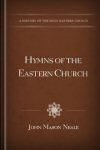
Hymns of the Eastern Church
- Author: J.M. Neale
- Publisher: J. T. Hayes
- Publication Date: 1870
- Pages: 250
This volume, a collection of multiple, original translations into English by Neale, includes ancient Eastern hymns such as “The Great Canon” of St. Andrew of Crete, “Canon for Easter Day” by St. John of Damascus, and “Canon for Christmas Day” by St. Cosmas the Melodist.
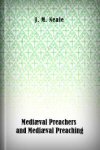
Mediæval Preachers and Mediæval Preaching: A Series of Extracts is a survey of extracts from sermons from the Middle Ages. J.M. Neale provides an in-depth introduction to the sermons of that epoch, and then provides notes on the sermons sampled. Sermons included come from eminent Medieval preachers such as: St. Boniface, St. Bede, St. Atto of Vercell, St. Peter Damiani, St. Bruno of Aste, Peter Abaelard, Adam Scotus, Thomas à Kempis, and more.
A remarkable book; chiefly valuable to clergymen of all persuasions, but not without interest to the literary student, or the thoughtful frequenter of public worship.
—The Living Age
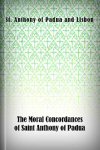
St. Anthony of Padua was not only one of the greatest, but one of the most popular preachers of the Middle Ages. His extant sermons and sermon notes evince a grasp of the Scriptures which well entitled him to the name bestowed on him by Gregory IX, “The Ark of the Testament.” St. Anthony died in 1231, and it wasn’t until 1638 that the Moral Concordances were discovered in a library attached to the Church called Aracoeli, in Rome. J.M. Neale provides the English translation along with an in-depth introduction.
This title is included in the following collections
You can save when you purchase this product as part of a collection.
Logos 6 Anglican Platinum Lega...
$1,499.99$1,499.99Logos 5 Anglican Platinum Lega...
$1,499.99$1,499.99Logos 7 Anglican Diamond Legac...
$2,999.99$2,999.99Verbum 7 Diamond Legacy Librar...
$2,999.99$2,999.99
- $2,999.99
- $2,999.99
- $4,749.99
- $4,749.99
- $4,749.99
About John Mason Neale
John Mason Neale (1818–1866) was a translator, scholar, hymn-writer, and priest in the Church of England. Born in London to an Anglican minister, Neale became fond of the Oxford Movement later in life and, as a result, found opposition from both his diocesan bishop and his congregation. Forced to resign, he spent most of his life working on translations of ancient hymns and liturgies, especially of the Eastern Orthodox tradition, as well as cofounding the Society of Saint Margaret and the Anglican and Eastern Churches Association. He was responsible for translating and introducing a number of ancient and Eastern hymns and liturgies to the English-speaking world. He was also a contributor to the Christmas hymn “Good Christian Men, Rejoice,” as well as the Boxing Day carol of “Good King Wenceslas.” His most popular historical works include History of the Holy Eastern Church and History of the so-called Jansenist Church of Holland. He is commemorated by both the Anglican churches (August 7) and the Evangelical Lutheran Church in America (July 1).